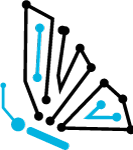Exploring the STEM values in pre-University Education

Author: Dora Fourou
Developing knowledge and skills for the future-ready students through IEEE Pre-University Activities
Education has a significant role in each person’s excellence, whether this is personal or professional or even a hobby. Starting from day 1 of our conception as an embryo to the very last day on earth. Education is a continuous process of trial and error providing us with all the knowledge and wisdom to be a better human. As Nelson Mandela said, “Education is the most powerful weapon which you can use to change the world”.
Pre-University Education as a stimulus conductor for students’ future choices
Pre-University Education refers to the education everyone has before entering the university sector. For every individual, pre-university education is an important stepping stone before starting university, since among the knowledge students receive, they also have to determine what program or career they want to pursue based on their interests, passions, aspirations, and influences.
According to Education at a Glance 2014: OECD Indicators Students in OECD countries attend an average of 4 553 hours of instruction during primary school and an average of 2 922 hours during lower secondary education. While the average total compulsory instruction time for primary and lower secondary students in OECD countries is 7 475 hours, formal instruction-time requirements range from 5 304 hours in Hungary to 10 120 hours in Australia.
Exploring a wide set of knowledge and skills for the future-ready students
In a fast-changing world with rapid advancement in science and the use of cutting-edge technology, a widened set of knowledge and skills are needed by the students to be ready for the future.
The future-ready students as described in the OECD Learning Framework 2030 will need both broad and specialized knowledge, with Disciplinary knowledge, continuing to be important. However, what is underlined is the Epistemic knowledge or knowledge about the disciplines. As an extension of disciplinary knowledge, students will be thinking as a mathematician or scientist, but also developing procedural knowledge by understanding how something is being done or made, which are the actions and steps taken, in order to achieve a goal – knowledge that is developed through a problem-solving process.
For the above to be achieved, a broad range of skills is needed. A variety of mixed skills such as cognitive and meta-cognitive skills:
- critical thinking,
- creative thinking,
- learning to learn and self-regulation
social and emotional skills:
- empathy,
- self-efficacy
- collaboration
practical and physical skills:
- using new information,
- communication technology devices
STEM: Science, Technology, Engineering, Mathematics held students develop numerous skills
The used term STEM refers to the fields of Science, Technology, Engineering, and Mathematics. STEM education is based on the idea of educating students in those four disciplines in an interdisciplinary and applied approach based on real-world applications and problems.
By trying to solve real-world problems, students tend to think differently, creating the feeling of being a scientist or an engineer who tries to provide a solution. Through this process the skills developed by STEM education are numerous. The STEM skills a student develops by such activities is a life-long investment. Such STEM skills are:
- collaborating,
- critical thinking
- incorporating feedback into work product,
- problem-solving,
- communicating effectively,
- time management
- teamwork
IEEE’s STEM Portal becomes a hub of pre-university STEM activities for all
IEEE stands for the Institute of Electrical and Electronics Engineers and is the world’s largest technical professional organization dedicated to advancing technology for the benefit of humanity. Within IEEE’s interests, Pre-University Education Activities have a great role for the engineers of tomorrow, by providing quality pre-university-level educational resources for teachers, parents, students, IEEE volunteers, and the general public, in order for everyone to explore its hidden internal engineer.
The variety of interests among IEEE members is huge. From technical standards to scientific research and bioengineering, the topics covered are unlimited, and its growth continues as long as cutting-edge technology advances. For IEEE the term STEM is part of its routine through its activities since its members are focused on STEM-focused professions. For the Educational activities, the STEM Portal was launched this year (2021).
The STEM Portal is for IEEE Volunteers and serves as a resource for all things related to Pre-University STEM programs and activities. Is a source of already existing fascinating educational activities and programs for IEEE volunteers to engage with a spectrum of STEM resources. Not only that but, STEM Portal provides you the unique opportunity to submit and share your own already designed, developed, and applied educational programs and to share your best practices, by being visible and accessible to everyone.












